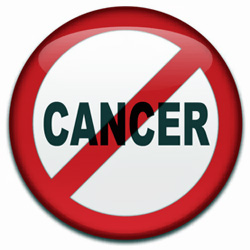 Food choices are very personal, making information that challenges the healthy nature of commonly enjoyed foods very controversial.
Food choices are very personal, making information that challenges the healthy nature of commonly enjoyed foods very controversial.
With the advancements in technology, new scientific discoveries are forcing us to question our fundamental beliefs about our diet and how it affects our health. If we hope to cure our society’s current health crisis, we need to pay attention to what science is telling us.
Fact: science has discovered a connection between consuming animal products and cancer.
It is a common belief that meat and dairy are considered the best and most important sources of protein for our health. It’s true; we cannot live without protein and its assortment of amino acids that are the primary building blocks for our muscles, bones, and many hormones. However, science is discovering how the consumption of animal products actually supports our cancer epidemic.
Here are just a few of the findings:
- Animal protein stimulates cancer growth. The China Study was the largest comprehensive study of human nutrition ever performed. Through a partnership between Cornell University, Oxford University and the Chinese Academy of Preventative Medicine, Dr. T. Colin Campbell examined the relationship between a diet rich in animal products and chronic illness, including cancer.
The findings where shocking; the main protein in milk is actually a carcinogen called casein. Although casein is a complete protein containing a variety of essential amino acids, researchers found an irrefutable direct correlation between increased consumption of dairy products and cancer tumor growth.
Additionally, The China Study proved that consumption of more than 10% of daily protein from animal sources turns on the cancer promoting ability of certain genes. By controlling the amount of animal protein, researchers were able to turn on and off the cancer expressing ability of those genes. Consequently, plant-based protein does not turn cancer genes on.
In 2005, a study published in the Journal of Urology discovered that the blood of men with prostate cancer who were on a vegan diet fought cancer cells 8 times better then those on the standard American diet. Pritikin researchers duplicated the above study on women with breast cancer in order to see what would happen if the women ate a vegan diet for 14 days. They tested before and after blood samples on three different types of breast cancer cells. In just two weeks on a vegan diet, the women’s blood actually slowed down and suppressed cancerous tumor growth in all three types of breast cancer!
- Animal protein encourages tumor growth by increasing blood levels of growth hormone IGF-I. In a recent study published in the research journal, Cell Metabolism (2014), scientists examined the relationship between diet and IGF-I levels in middle aged people. A certain level of IGF-I in our bloodstream is normal, playing an important role in cellular growth. However, the researchers found that people between the ages of 50-65 who ate diets high in animal protein exhibited increased levels of IGF-I and were four times more likely to die of cancer when compared to the low-protein diet group. Consequently, those consuming high plant-based protein diet presented no marked association between IGF-I and cancer death.
- Cooked meat contains carcinogens that encourage cancer development. According to the National Cancer Institute, when muscle meat (i.e. beef, pork, fish, poultry) is cooked at temperatures above 300 degrees F (i.e. grilled, fried, baked, barbecued) or cooked for a long period of time (i.e. roasted, smoked) it increases their content of HCA and PAH carcinogens. As HCAs and PAHs are metabolized in your body, they trigger DNA mutations (the first stage of cancer), promote tumor growth, and increase cancer’s metastatic potential.
In one small study, researchers examined the relationship between meat consumption, cooking method and breast tissue DNA mutation in women undergoing breast reduction surgery. The scientists found that the number of tissue DNA mutations directly correlated with each woman’s estimated consumption of cooked meat carcinogens. To take this one step further, researchers recently demonstrated that one of the most common HCAs found in cooked meat, PhIP, when dripped directly on normal breast cells completely transforms them into breast cancer. They also discovered that accumulated exposure to PhIP results in the progressive transformation into cancer.
In another small study performed in 2001, scientists measured the levels of PhIP in breast milk from nonsmoking women. They discovered that the ductal mammary epithelial cells are directly exposed to the carcinogen; the meat-eating women had high PhIP levels that directly corresponded to significant cancer growth potential. The one woman in the study who was vegetarian had no PhIP detected in her breast milk.
- The sugar in red meat helps cancer thrive. A UC San Diego study published in January 2015 discovered that red meat contains a sugar called Neu5Gc that is found in most mammals (but not in humans). This sugar causes our immune system to trigger an inflammatory response in the body. The digestive systems of most carnivores are naturally capable of processing this sugar, however, humans cannot. As this sugar metabolizes in our bodies it creates chronic inflammation, an environment proven to encourage cancer infiltration and tumor growth.
These studies don’t hold all the answers, but create a compelling argument. They are just the beginning, opening the door to more questions as we delve deeper into the relationship between the food we eat and our health. By being aware of these new discoveries, we can begin to make informed choices about the foods we eat.

Great post! – Good info here.